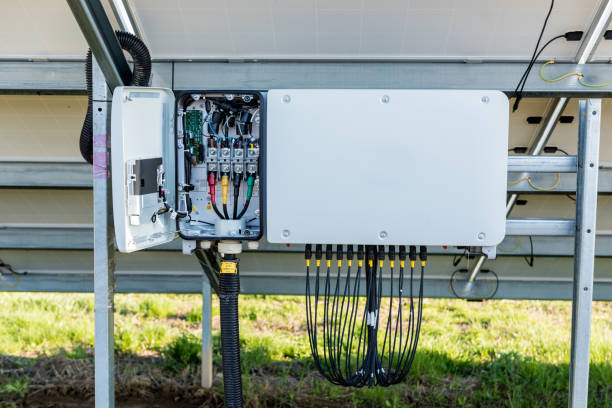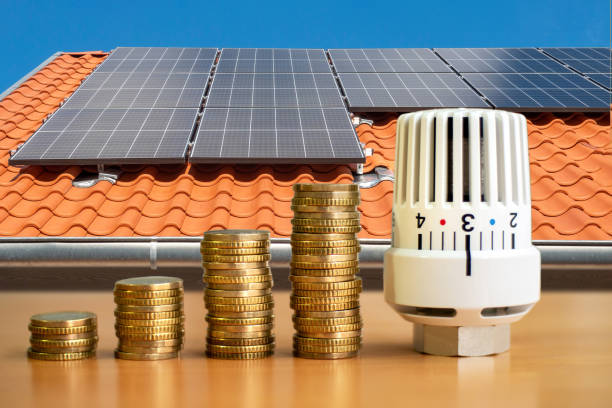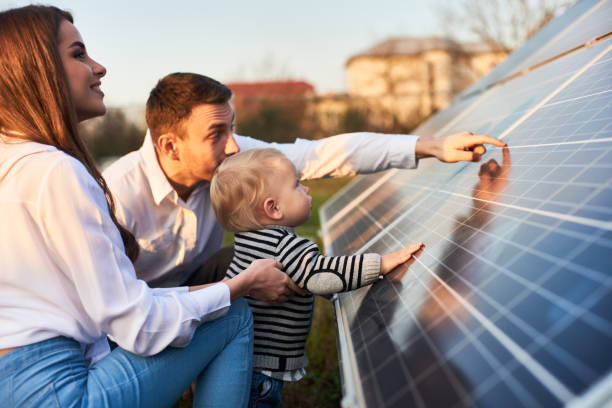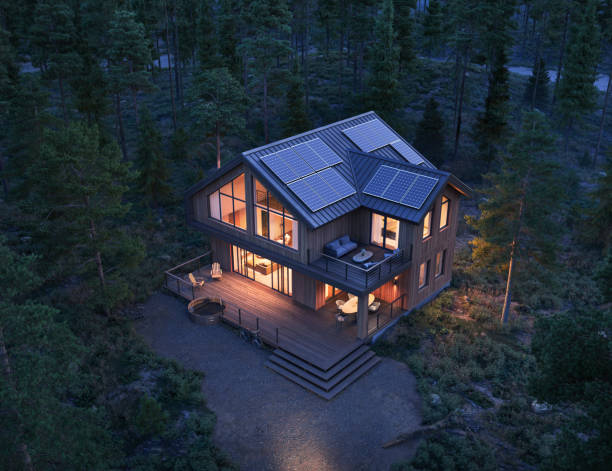Solar Inverter Efficiency Tips
This post contains affiliate links. I may earn a commission at no extra cost to you if you make a purchase. Note that I’m not a health or outdoor safety professional, so further research is advised. Your support keeps Outdoors A-Z running—thank you! Read the full disclosure.. Read the full disclosure here.
Solar energy has emerged as a powerful solution to the world’s growing energy demands, offering a clean and renewable source of power. Within the intricate web of solar power systems, solar inverters play a pivotal role. These unassuming devices are the unsung heroes, converting the direct current (DC) generated by solar panels into the alternating current (AC) that powers our homes and businesses. While solar panels often steal the spotlight, the efficiency of your solar inverter can significantly impact the overall performance and cost-effectiveness of your solar energy setup.
In this blog post, we’ll delve into the world of solar inverter efficiency, exploring the reasons why it matters and providing valuable tips to optimize its performance. Whether you’re a homeowner considering solar installation or a renewable energy enthusiast keen on maximizing your system’s output, understanding the nuances of solar inverters is crucial.
Table of Contents
Understanding Solar Inverters
Solar inverters are the unsung heroes of solar energy systems, transforming the raw energy harvested by solar panels into a usable form for our homes and businesses. To appreciate the importance of solar inverter efficiency, it’s essential to grasp the fundamental workings of these devices.
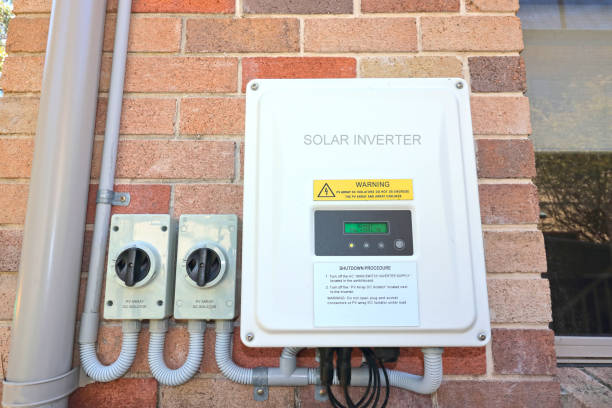
What is a Solar Inverter and Its Role?
At its core, a solar inverter is an electronic device that converts the direct current (DC) generated by solar panels into alternating current (AC) electricity, which is the type of electricity used in most homes and businesses. This transformation is vital because the electricity grid and most appliances operate on AC power. In essence, solar inverters bridge the gap between sustainable solar energy and our everyday energy needs.
Types of Solar Inverters
String Inverters
These are the most common type, where multiple solar panels are connected in a series (or string), and the inverter manages the entire string. While cost-effective, they are susceptible to efficiency losses due to shading or panel mismatch.
Microinverters
Unlike string inverters, microinverters are attached to individual solar panels. This setup maximizes efficiency by allowing each panel to operate independently, mitigating the impact of shading or panel issues.
Power Optimizers
Power optimizers are devices connected to each solar panel, optimizing the DC electricity produced by the panel before sending it to a central inverter. They combine the advantages of both string inverters and microinverters, enhancing system performance and flexibility.
Key Components and How They Function
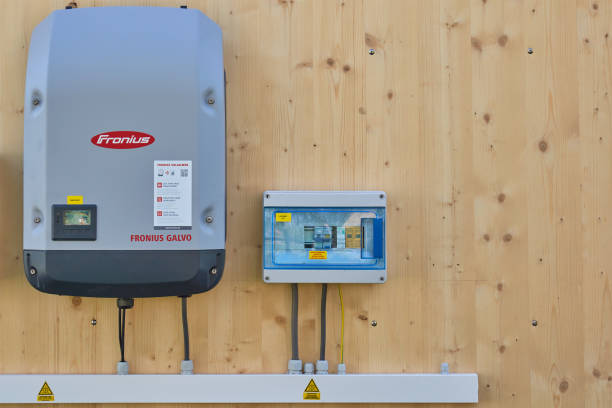
MPPT (Maximum Power Point Tracking)
MPPT technology is a crucial component of solar inverters. It ensures that the inverter operates at the maximum power point of the solar panels, maximizing energy production even under varying weather conditions.
Grid-Tied Functionality
Most solar inverters are grid-tied, meaning they synchronize with the local utility grid. Excess energy can be fed back into the grid, allowing homeowners to earn credits through net metering or similar programs.
Understanding these components and the different types of inverters lays the foundation for optimizing their efficiency.
Factors Affecting Solar Inverter Efficiency
Now that we’ve grasped the basics of solar inverters, it’s crucial to delve into the factors that impact their efficiency. Several variables can influence how well a solar inverter performs, and being aware of these factors can empower you to make informed decisions for your solar energy system.

Impact of Temperature on Inverter Performance
Solar inverters are sensitive to temperature fluctuations. As the temperature rises, the efficiency of the inverter can decrease. It’s essential to consider the climate of your location and choose an inverter that can handle the temperature variations. Additionally, proper ventilation and cooling mechanisms can significantly improve the inverter’s efficiency, especially in hot climates.
Effect of Shading and Panel Orientation
Shading, even from a small object like a tree or neighboring building, can dramatically reduce the efficiency of solar panels and, consequently, the entire solar energy system. Understanding the shading patterns throughout the day and seasons can help optimize the placement of panels and the use of technologies like microinverters or power optimizers, which mitigate the impact of shading.
Moreover, the orientation and tilt angle of solar panels play a vital role. Panels should ideally face south (in the Northern Hemisphere) to receive maximum sunlight exposure. If your panels cannot face south directly, adjusting the tilt angle according to your latitude can compensate for this, ensuring better energy production.
Importance of Choosing the Right Inverter Size
Selecting the appropriate size of the inverter for your solar array is crucial. Oversized or undersized inverters can both lead to efficiency issues. An oversized inverter for a small solar array might operate at lower efficiency levels, while an undersized inverter for a large array might not utilize the full potential of the panels. Proper sizing ensures the inverter operates optimally, maximizing energy production and system longevity.
Regular Maintenance and Cleaning Tips for Optimal Efficiency
Regular maintenance and cleaning are often overlooked aspects of solar energy systems. Dust, dirt, bird droppings, and other debris can accumulate on solar panels over time, reducing their efficiency. Regular cleaning, typically with water and a soft brush, ensures that panels receive maximum sunlight. Additionally, inspecting the inverter for signs of wear, dust accumulation, or pests can prevent potential issues and maintain peak performance.
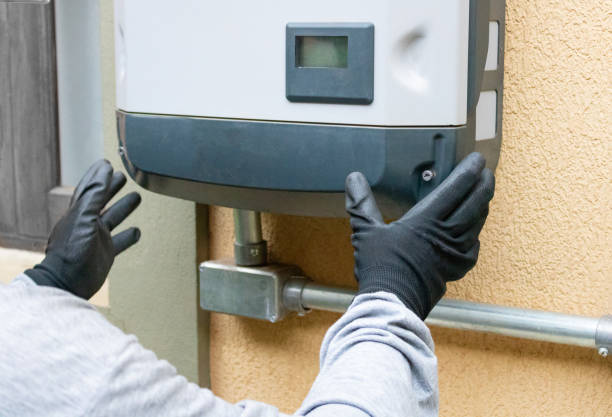
By understanding and addressing these factors, you can significantly enhance the efficiency of your solar inverter and, by extension, your entire solar energy system. In the following section, we’ll provide actionable tips and strategies to improve solar inverter efficiency, empowering you to make the most of your renewable energy investment.
Tips for Improving Solar Inverter Efficiency
Now that we comprehend the factors influencing solar inverter efficiency, let’s explore actionable strategies and tips to enhance the performance of your solar energy system. Implementing these practices can not only boost energy production but also contribute to long-term savings and a more sustainable future.
Selecting the Right Type of Inverter
Choosing the appropriate inverter type for your specific solar installation is fundamental. Evaluate the shading conditions, panel orientations, and your budget. If shading is a concern, microinverters or power optimizers, which optimize the performance of individual panels, can be a wise choice. Alternatively, if shading is minimal and you’re mindful of costs, a string inverter might be suitable. The key is to align the inverter type with your unique installation requirements.
Utilizing Power Optimizers and Microinverters
Power optimizers and microinverters are advanced technologies designed to maximize energy production, especially in partially shaded conditions. Power optimizers, connected to each panel, track the maximum power point of individual panels, ensuring optimal performance. Microinverters, on the other hand, are installed on each panel, converting DC to AC right at the source. By employing these technologies, you can mitigate the impact of shading and panel mismatch, significantly enhancing overall system efficiency.
Implementing Proper Wiring and Installation Techniques
The way your solar panels and inverters are wired and installed can influence system efficiency. Proper wiring, avoiding long wire runs and using appropriate cable sizes, minimizes energy losses. Additionally, ensuring that the inverter is installed in a cool, well-ventilated area prevents overheating and maintains efficiency. Professional installation is crucial; experienced installers understand the nuances of proper wiring, placement, and ventilation, optimizing your system’s performance.
Monitoring and Data Analysis Tools
Investing in monitoring and data analysis tools allows you to keep a close eye on your solar energy system’s performance. Real-time monitoring systems provide insights into energy production, allowing you to identify and address efficiency issues promptly. By detecting abnormalities or drops in performance, you can take proactive measures, ensuring your system operates at its peak efficiency throughout its lifespan.
Importance of Professional Installation and Regular Inspections
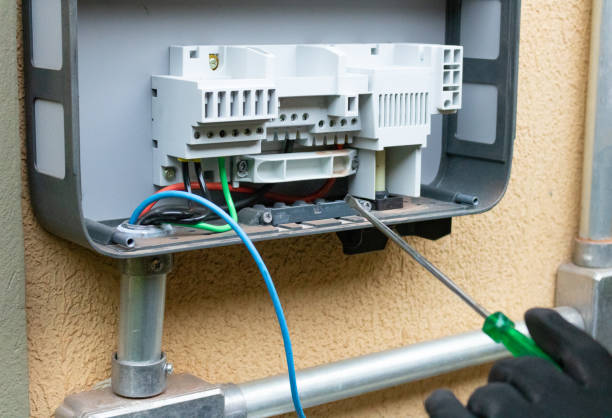
Lastly, never underestimate the value of professional installation and regular inspections. Certified installers possess the expertise to optimize your system, from choosing the right inverter to ensuring correct placement and wiring. Regular inspections, preferably conducted annually, allow professionals to identify any wear, damage, or inefficiencies, addressing them before they escalate into significant problems. Preventive maintenance and timely repairs are key to maximizing your solar inverter’s efficiency and overall system performance.
By incorporating these tips into your solar energy journey, you not only enhance the efficiency of your solar inverter but also contribute to a more sustainable energy future. Stay vigilant, invest wisely, and enjoy the full benefits of solar power while minimizing your environmental footprint.
Innovations and Technological Advancements
The world of solar energy is constantly evolving, driven by a relentless pursuit of efficiency and sustainability. In recent years, remarkable innovations and technological advancements have revolutionized solar inverters, paving the way for more reliable, efficient, and cost-effective solar energy systems.
Overview of the Latest Advancements in Solar Inverter Technology
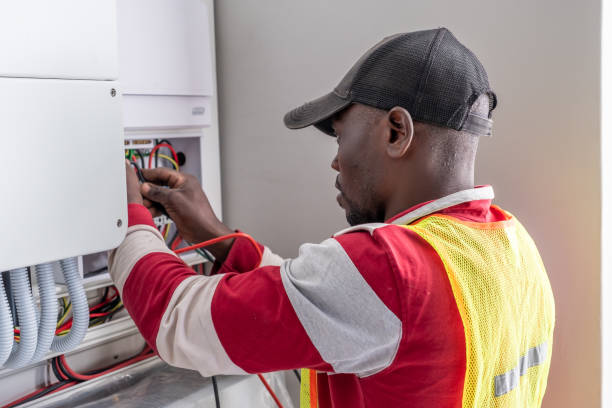
Higher Efficiency Ratings
Modern solar inverters boast higher efficiency ratings, ensuring that more of the energy harvested from the sun is converted into usable electricity. This increased efficiency translates to greater energy production and, ultimately, higher savings on your electricity bills.
Smart Inverter Technology
Smart inverters are equipped with advanced monitoring and communication capabilities. They can communicate with the grid and adjust their output based on grid conditions, demand, and other external factors. These smart features not only optimize energy production but also enhance grid stability.
Enhanced Durability
The latest solar inverters are designed to withstand harsh environmental conditions, including extreme temperatures, humidity, and dust. Enhanced durability ensures a longer lifespan and consistent performance even in challenging climates, making them a reliable choice for various locations worldwide.
Emerging Trends in Solar Inverter Technology
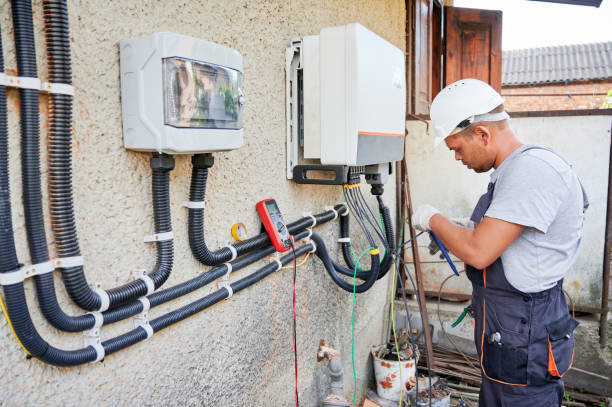
Battery Integration
Integrating solar inverters with energy storage systems, such as batteries, has become a prominent trend. This integration allows homeowners to store excess solar energy for later use, increasing energy independence and resilience, especially during power outages.
Hybrid Inverters
Hybrid inverters are versatile solutions that can manage both solar panels and other energy sources, such as wind or conventional grid electricity. These inverters intelligently balance the energy inputs, maximizing the use of renewable sources and minimizing reliance on non-renewable energy.
Advanced MPPT Algorithms
The Future of Solar Inverter Efficiency
As the world continues its transition towards sustainable energy sources, the future of solar inverter efficiency appears promising, marked by exciting developments and transformative technologies. Here’s a glimpse into what the future holds for solar inverters and their role in shaping the renewable energy landscape.
Predictions about Future Developments in Solar Inverter Technology
Higher Conversion Efficiencies:
Researchers and engineers are tirelessly working to enhance the conversion efficiency of solar inverters. Breakthroughs in materials science and semiconductor technology are expected to yield inverters with unprecedented efficiency levels, ensuring that more solar energy is harnessed and utilized effectively.
Advanced Energy Management:
Future solar inverters will likely feature sophisticated energy management systems. These systems will intelligently distribute energy between the grid, energy storage devices, and connected appliances, optimizing energy usage based on demand patterns and grid conditions. This level of automation will maximize energy savings and minimize wastage.
Integration with Artificial Intelligence (AI):
AI-powered algorithms will revolutionize solar energy systems. Solar inverters equipped with AI capabilities will analyze vast amounts of data in real-time, allowing for predictive maintenance, optimal energy production, and adaptive response to changing environmental conditions. This integration will significantly enhance system performance and reliability.
Expected Impact on Renewable Energy Adoption and Sustainability Goals

Accelerated Renewable Energy Deployment:
Highly efficient solar inverters will expedite the adoption of solar energy on a global scale. With increased energy production and reduced costs, solar power will become even more economically viable, encouraging businesses and individuals alike to invest in renewable energy solutions.
Grid Stability and Energy Security:
Smart inverters with grid-supportive functionalities will enhance the stability of electricity grids. These inverters can provide grid services such as voltage regulation and frequency control, contributing to a more reliable and resilient energy infrastructure. In times of natural disasters or grid failures, solar-powered homes with energy storage and smart inverters will enjoy uninterrupted power supply, enhancing energy security.
Mitigating Climate Change:
The widespread implementation of highly efficient solar inverters will play a pivotal role in mitigating climate change. By reducing dependence on fossil fuels and lowering greenhouse gas emissions, solar energy systems, powered by advanced inverters, will contribute significantly to global efforts to combat climate change and achieve sustainability goals.
The future of solar inverter efficiency is intertwined with the future of our planet. As these technologies continue to advance, they empower individuals, communities, and nations to embrace clean and sustainable energy solutions. By staying informed, embracing innovation, and making conscious choices, we can collectively pave the way for a greener, more sustainable future for generations to come.
Conclusion
Whether you’re a homeowner considering solar installation, a renewable energy enthusiast, or a champion of environmental conservation, remember that your choices matter. Every efficient solar energy system contributes to a brighter, greener future for our planet.
As you embark on your solar energy journey, armed with the knowledge and insights shared here, we invite you to take the next step. Embrace the sun, harness its energy wisely, and become a part of the renewable energy revolution. Together, we can illuminate the path to a sustainable future—one solar panel, one efficient inverter, and one enlightened choice at a time.

